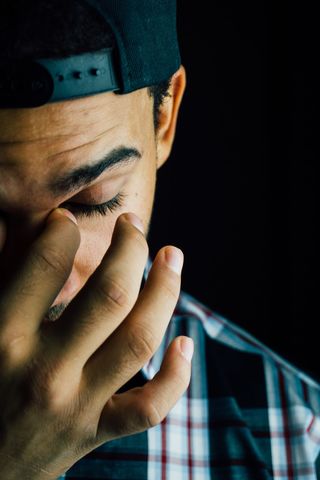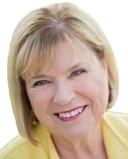Depression
Depression, Helplessness and “The Great Pause”
Turning helplessness into influence can help decrease depression.
Posted April 25, 2020 Reviewed by Lybi Ma
One thing is for sure: We do not have much that is in our control these days. An invisible virus that could sicken us or even kill us lurks in unforeseen places. A community-wide stay-at-home order for most of us keeps us stuck inside. A financial crash that is without precedence in our lifetime (presuming most of us did not live through the depression) threatens our financial and economic stability. What a set-up for depressed reactions.
One big trigger for depression is the feeling of helplessness. In my experience over these many years as a therapist, I have observed that people who have experienced this feeling in their lives are prone to depression when situations in life seem out of their control. And what a time to feel out of control. There is very little about this “Great Pause”—a time in our lives when everything has come to a halt—that we are in control of.
People respond differently to this time of holding still. I want to offer some examples of this.
Justin*, whose father was unreliable, an alcoholic and often jobless, is thrown into despair over the financial upheaval of this time. He is still working but knows that the longer we are "paused," the more likely his job could disappear. All his life he has sought to be in control—to never be like his own father or feel the way he felt living in that household as a child. Now this time of uncertainty has thrown him into feeling helpless, and each day he awakens with a heavy sense of despair.
Justin said that despair comes from repeatedly thinking: “There is nothing I can do!” He is not so worried about getting sick as he is worried that his small business will go under, and there is no way he can control the economy that his business depends on. If larger companies are not ordering his products, there is no place to sell what he makes and no way for him to earn. He wishes he could go to sleep and wake up when this is over—he wants to escape the daily helplessness. And, though Justin does sleep more, his feeling of helplessness increases in the long run.

Brady*, on the other hand, is angry about the inability to move out of the limits of the Great Pause. He wants to get outside and back into his routine. He wants to meet up with his bicycle club, go out to eat, and volunteer again. All of these face-to-face encounters are not going to happen while he is in lockdown. Brady can work from home, but he wants to be connected. This loneliness and need for social interaction cause Brady's depression to make him feel angry, and he doesn't know where or how to direct his anger. How do you get angry at a virus? The lack of control over his daily actions stimulates a depression. “There is no escape.” Again, we see a helpless reaction, as with Justin, but this time with flailing anger instead of despairing lethargy. And anger usually gives us the energy to take corrective action, but in this case, it has no action to direct, and thus increases depression.
These situations remind me of how useful it might be to consider the difference between control and influence. There is so little in the Great Pause, much less in life, that we can control. That said, there is much that we can influence. If Justin were to consider this, he could turn his helpless feeling into a specific plan for what he can do right now. This is not going to last forever. Our lives are going to be different, but while we all wait to see what is going to happen, like Justin, we must ask what is in our power to influence daily. Justin spends each day overwhelmed with a helplessness that he feels will end in disaster for him. It might, but it might not. He cannot act when he focuses on the long-range outcome.
I suggested: To combat the lethargy, he should list the things he can do to keep his small business going. And he should choose one thing each day that moves him in that direction. If he could end each day knowing he had accomplished one thing that might help, it would intervene on the helpless feeling. Justin argued that it is not enough to save the business, but after some thought, he was able to accept that keeping his business going requires small daily steps that are actually in his control. His depression could be less of a drag on him if he could feel that he is influencing the outcome at the end of the pause. He also decided that he should go outside each day and watch the world bursting into spring and really pay attention to what life outside our minds has to offer. He is not in control of when flowers bloom, but he can feel pleasure at seeing that they do. Walking and exposing yourself to things that give you pleasure are counter-actions to lethargy and depression.

Let's focus on Brady's anger. Brady needs more places to put the angry energy that fuels a more agitated depression. He has limited himself unnecessarily. In his frustration about not being with friends, colleagues, and being out in a social world, he has isolated himself unnecessarily. For him, working from home includes those now-ubiquitous Zoom meetings, but those do little to satisfy his need to be out. He needs to substitute some of his activities. If Brady feels the urge to bike, he must do so alone until the club can resume meeting.
I asked him to think about substitutes for eating out. He decided he could get take-out and drive to a park with his wife and eat in the car—at least it is out of the house. Brady can influence his feelings of helplessness by choosing to act. Even though it might lack the ambiance and liveliness of a restaurant experience with colleagues, familiar servers, and a special-of-the-day that he enjoyed, he has some influence about whether he eats every meal at home. He could even satisfy that need to volunteer by checking with neighbors who might need a person to mow their yard or shop for groceries. Brady said he liked the intellectual challenge of his volunteering as a reading mentor but acknowledged that being helpful in pragmatic ways might change his sense of anger. He recognized his good fortune to have work and he could feel less alone if he was of use to others.
These ideas are not panaceas for depression, but move people in the direction of less helplessness and less frustration. To decide what you can influence is a powerful counter-action to the helplessness of depression. If this has been deepening for you during “The Great Pause,” consider Justin and Brady’s ideas:
- Decide on at least one thing you can do each day that is productive. Notice it when you do it. You are influencing a positive outcome. If you can act, you are not helpless.
- Accept that you are not in control, but you are not at the mercy of your frustration. Like Brady, you can influence your mood by taking substitute actions that meet some, if not all, of your needs. You will be able to get out the way you prefer at a later time, but for now, you can do positive activities to lighten your depression.
- See the beauty that exists. Look at the changes in weather and the greening of the world around you as Spring occurs. Observe how the earth is cleaning itself up and take this moment to really look at the clear skies and water. You are not in control of this process and if you contemplate the beauty that occurs without your control, it might awaken a sense of hope in you.
- Remember that this is not forever. And while you are paused, see whom you can help to get through this. Stepping outside of your own feeling of helplessness to act to help others will help them and you.
*For the sake of confidentiality and privacy, names of clients have been changed




